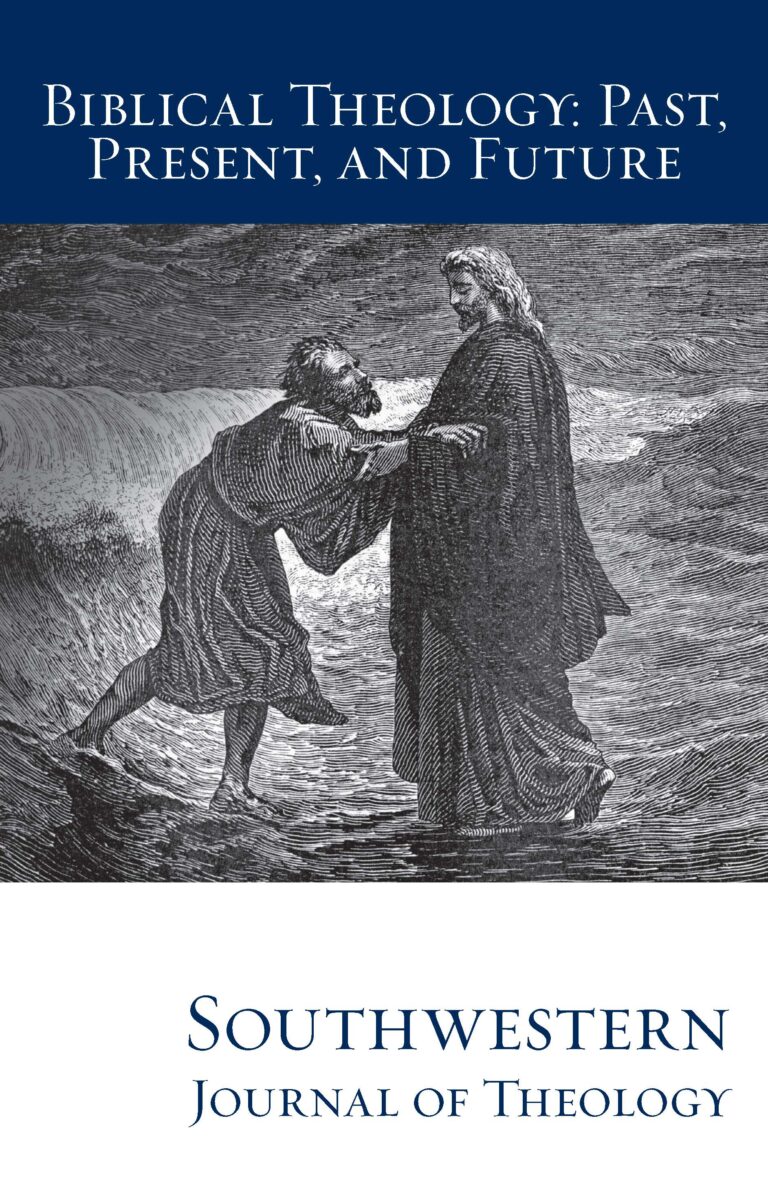
Biblical Theology: Past, Present, and Future (II)
Southwestern Journal of Theology
Volume 56, No. 1 – Fall 2013
Managing Editor: Terry L. Wilder
By Brian Lugioyo. Oxford: Oxford University Press, 2010. 256 pages. Hardcover, $49.00.
Few Protestant reformers have had the monumental impact on the formation of the Protestant Church in Europe with so little historical recognition than Martin Bucer and Heinrich Bullinger. It is no exaggeration to state that John Calvin’s influence on Protestant ecclesiology would have been negligible had his mentor and father in the faith, Martin Bucer, not invested such capital in the young reformer at Strasbourg. Called the Vermittlung, the “in-between” pastor, Bucer was best known for his middle stance theologically (between Luther and Zwingli), ecclesiologically (between Luther and Bullinger), and geographically (living on the edge of France, Germany, and Switzerland). Professor and author, Brian Lugioyo, says of Bucer, “He was neither a Lutheran nor Reformed. He saw himself as a follower of Luther and a mentor to Calvin. He was a humanist and theologian, pastor, diplomat, author, and disputer . . . mediating between Protestants, Anabaptists, and Catholics, he was [truly] a reformer in-between” (8). A prodigious reformer in his own right, Martin Bucer set the stage for both theological and ecclesiastical reform in Germany, Switzerland, and England while championing peaceful negotiations between leaders of both the Roman Catholic Church and Protestant reformation. As such, Bucer was unfortunately disparaged and discredited by both sides throughout his ministry.
In this work, Brian Lugioyo presents a compelling case that Bucer developed a strong view of justification by faith independent of outside influences. A new contribution to Bucerian study, Lugioyo writes with force and clarity, unearthing older historical analyses of the forgotten reformer. Through an exhaustive examination of Bucer’s commentary on the book of Romans, Lugioyo argues that Bucer’s thoughts on justification were not only original to his own conception of Pauline theology, but intensely applicable to his generation’s debate raging between Protestants and Catholics. Painstakingly, Lugioyo’s research indicates that during many of Bucer’s arbitrative disputations with varying sides of the theological and ecclesiological debate, Bucer never departed from his central understanding of the core tenet of Protestant theology, namely justification by faith and not works. Lugioyo states, “For Bucer reform could not be achieved at the expense of the truth of justification as he understood it” (12). Thus, as a new standard for the contribution toward Protestant Bucerian studies, Lugioyo’s work serves as a firm response to historical critique that Bucer’s development of justification by faith was simply a compendium of “mediating theology.”
At the outset of his work, Lugioyo displays Bucer’s life, ministry, and theological method as that of consistency. Lugioyo authenticates that Bucer held to a consistent definition and use of the doctrine of justification by faith as early as 1536 and represented this view faithfully during the religious colloquies of 1539-1541 and thereafter. Lugioyo then compares Johannes Gropper’s view on justification in the Enchiridion as a stark contrast to Bucer. Gropper, who as a moderate Roman Catholic reformer, wrote eloquently concerning the Roman Catholic perspective on justification and accompanied his archbishop to various disputations and colloquies where he interacted with Bucer. In contradistinction to Gropper and the Roman Catholic position, Lugioyo demonstrates that Bucer held believers’ justification to be both declarative and effective since justification derived from God’s imputation rather than a progressive impartation. Lugioyo notes that Bucer believed and taught that God declared men righteous and just only through Christ’s mediating work as employed through faith by Holy Spirit’s leading. To this view of justification, Bucer never waned or relented. Rather, Bucer launched his reformational ministry on his independent study and biblical conception of Paul’s use of justification by faith.
To be highly recommended, this book is helpful on many levels for pastors, theologians, and historians. An impactful study, Lugioyo balances with ease a book about neglected reformational history, insightful exegesis, and practical theology which he smartly coalesces for contemporary application. In the ever-growing discussion on practical methodology of the needed theological discourse within one’s community, Lugioyo’s work on Bucer is among other things an encouraging study on theological methodology for conservative evangelical Protestants wishing to engage both moderate leaders and non-believers in a post-modern and postevangelical nation. As Lugioyo brilliantly articulates, men of faith and passion for God’s truth do not have to relent their theological position in order to engage effectively competing postures or negotiate compromise in non-essential matters. If Lugioyo leaves anything with his blessed readers, he leaves, as a modern example to follow, an informed portrait of a godly reformer who led men guided by coherent theological convictions. Bucer, like Lugioyo’s work reflecting a newly discovered dimension of the reformer’s theology and doctrine, will positively impact successive generations for truth and peace.





